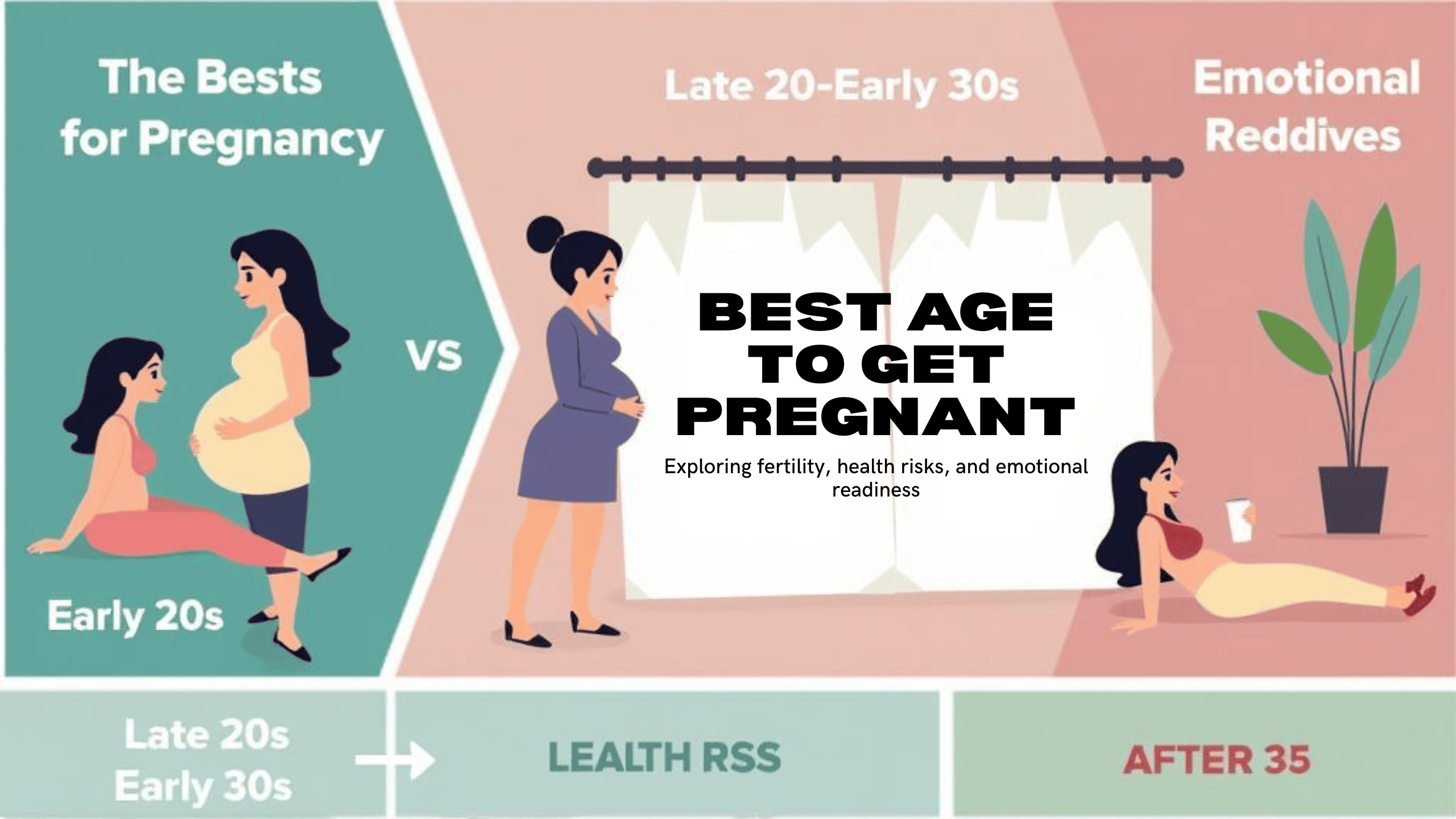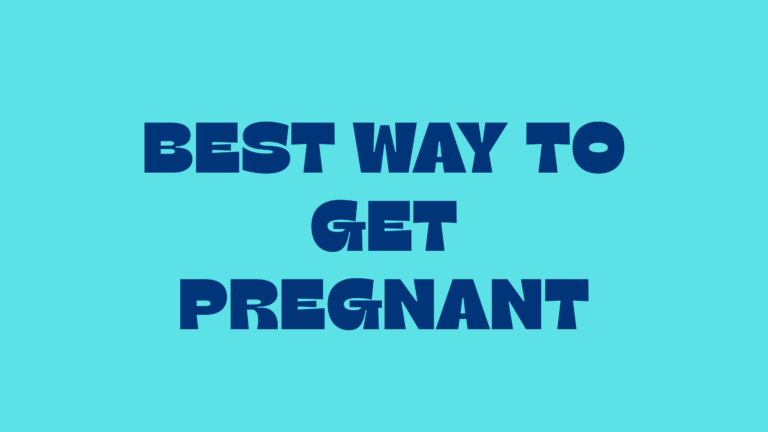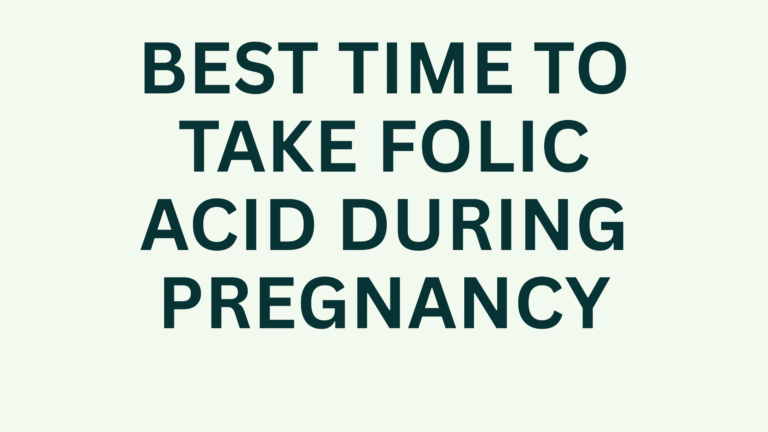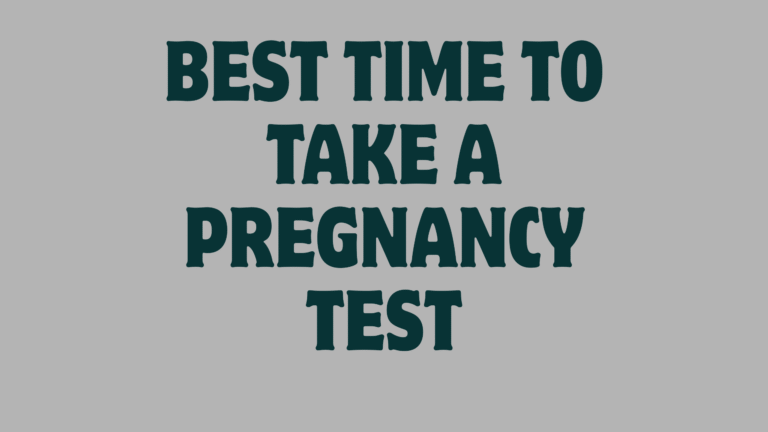Best Age to Get Pregnant: A Clear Guide for Wannabe Mom

Best Age to Get Pregnant
The best age to get pregnant is something many women wonder about early in life. Knowing the ideal time can help with planning, health, and emotional readiness. Finding that sweet spot between biology and life circumstances helps couples make informed decisions and reduces anxiety. In this guide, we’ll walk through the science, pros and cons, health considerations, emotional maturity, and lifestyle realities tied to the best age to get pregnant.
1. What Does “Best Age to Get Pregnant” Mean?
When people ask about the best age to get pregnant, they’re often balancing fertility, health risks for both mom and baby, and personal or career goals. Biologically, certain ages offer lower risks and better fertility. But life priorities—like financial stability, emotional maturity, and relationship readiness—also play a big role. We’ll explore both dimensions to help readers understand why certain ages may be better on paper, yet every woman’s timing is deeply personal.
2. Biological Prime: Fertility & Health
Biologically, experts generally highlight the early to mid-20s through early 30s as the period when fertility is highest and pregnancy risks are lowest. Fertility starts to decline gradually after age 30, with a sharper drop after 35. In your 20s, eggs are plentiful and of higher quality, reducing risks of chromosomal anomalies. As age increases, risks like gestational diabetes, hypertension, and miscarriage become more common. Still, many women have healthy pregnancies well into their 30s and early 40s—especially with modern fertility support. The best age to get pregnant biologically tends to hover around mid-20s to early 30s.
3. Emotional Readiness & Maturity for Best Age to Get Pregnant
Deciding on the best age to get pregnant isn’t just about biology—it’s also about emotional readiness. Raising a child requires patience, resilience, and emotional bandwidth. In one’s 20s, energy may be plentiful, but life stability may still be in progress. In your 30s, many feel more secure in career, relationship, and mental health. This emotional grounding can translate into a more confident pregnancy and parenting experience. Reflect on your support system, mental health, and life stability when considering timing.
4. Career, Finances & Lifestyle Considerations
Career planning often comes into play when deciding on the best age to get pregnant. Many in the US delay pregnancy to complete education, secure employment, or accumulate savings. In your 30s, you may enjoy better job standing, health insurance, and financial security—but those years are also when fertility declines. On the other hand, earlier pregnancies may intersect with educational goals or early career phases. Balancing these aspects is key; your best age to get pregnant may align with when both opportunity and readiness converge.
5. Health Risks and Considerations by Age Group
Here’s how risk profiles change with age:
- 20s: Least risk, greatest fertility, but lifestyle may be more fluid.
- 30–34: Still strong fertility, slightly higher risk of gestational issues—but modern prenatal care mitigates risk.
- 35–39: Fertility declines faster; risk of chromosomal conditions and other complications rises.
- 40+: Further decrease in fertility, higher miscarriage rate, but many successful pregnancies occur with support.
Understanding this age-related spectrum helps frame what “best” means for your unique situation.
6. What the Science & Professors Say
Clinical data generally supports the notion that the best age to get pregnant is between ages 20–35, with mid-20s being optimal from a purely biological lens. But recent research also shows that, with proper prenatal care and healthy lifestyle, women in their late 30s and early 40s have successful and healthy pregnancies too. It’s about combining smart medical planning with lifestyle confidence.
7. Real-World Perspectives: Personal Stories
Many women share stories of pregnancy at different ages—some in their early 20s juggling schooling, others in their late 30s balancing careers. What unites them is thoughtful preparation. Hearing real experiences can ground the concept of best age to get pregnant in relatable terms—especially when societal norms and personal paths vary widely.
8. Making Your Decision: A Personal Checklist
To determine your own best age to get pregnant, consider:
- Fertility plans: How soon are you ready?
- Health status: Any medical concerns?
- Emotional stability: Feel confident and supported?
- Financial readiness: Can you manage expenses?
- Support network: Partner, family, or community support?
Reflect on these to choose timing that’s right for you, not any age ideal.
9. Fertility Support & When to Seek Help
If you’re trying to pinpoint your window of optimal fertility—or if you’re nearing mid-30s and concerned—consider consulting a fertility specialist. Tests like ovarian reserve, hormone levels, and lifestyle assessments help determine timing and needs. Fertility tools and prenatal advice may guide you further.
10.You Define the “Best Age to Get Pregnant”
While biology offers a general guide, the best age to get pregnant varies with each woman’s journey. Whether you’re in your mid-20s with high fertility or your late 30s with emotional clarity and stability, the right age comes when you feel prepared medically, emotionally, and practically. Use this article as a foundation, but always consult healthcare professionals and trusted advisors when making such a personal decision.
About The Author
JYO JOURNEY
PregnancyKit – to provide real, honest, and easy-to-understand information for women who might be wondering, “Am I pregnant?” or “What should I expect now?” Every guide I write is based on what we wished we had known during our own journey.
Through PregnancyKit, I want to help women feel supported, informed, and confident from the very first symptom. Because I believe every woman deserves clarity, care, and a little less stress during one of the most important journeys of her life.


